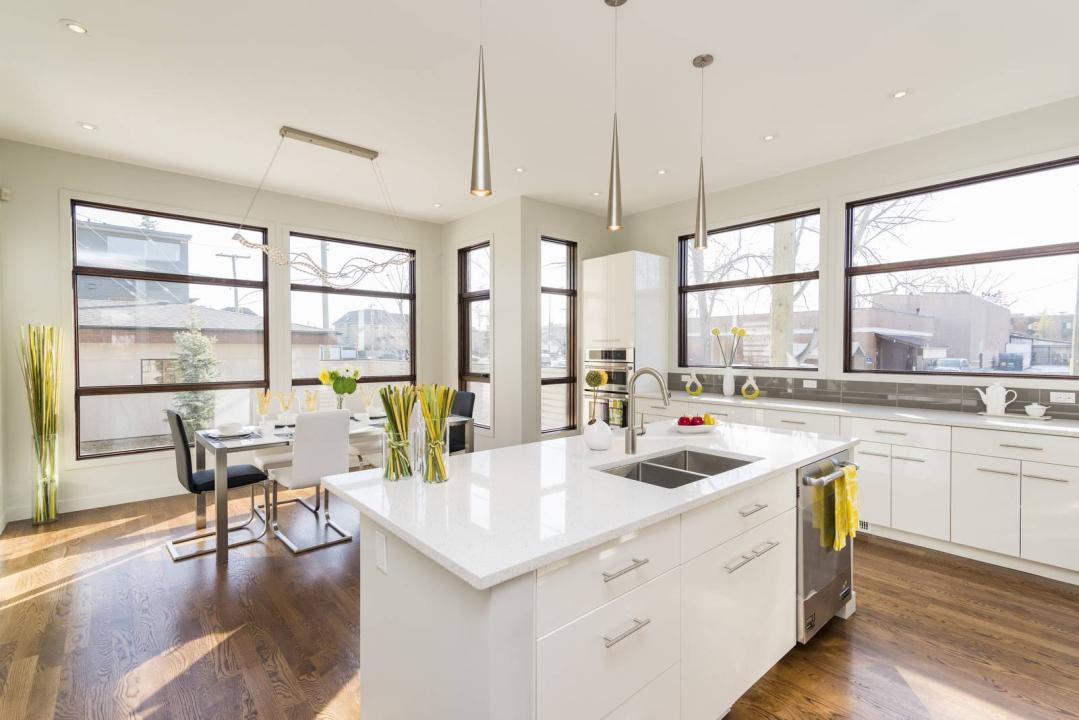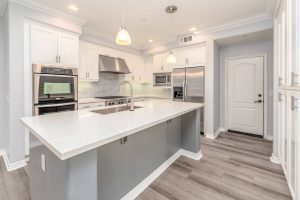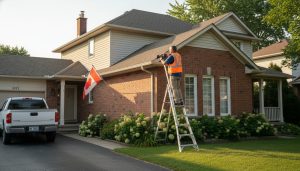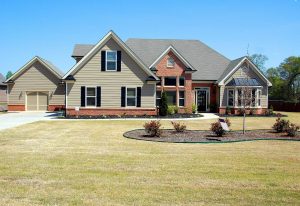Are you trying to buy or sell a house in the GTA West and feeling totally lost?
It’s confusing. Prices go up. Prices go down. News reporters shout scary things. It feels like you need a secret map just to figure it out. This guide is that map. Forget the jargon and confusing talk. This is your simple, step-by-step plan for buying or selling a home in Georgetown, Milton, Guelph, Acton, Oakville, or Burlington. We’ll cover everything you need to know, from understanding today’s market to finally getting those keys or that sold sign.
Understanding the GTA West Market Right Now (2024/2025 Trends)
First things first. What’s actually happening out there?
The last few years were wild. Prices shot up like crazy. Now? Things are different. The market in 2024 feels more balanced. Buyers have a bit more breathing room. Sellers need to be smart about pricing.
Here’s the deal for areas like Milton, Oakville, and Burlington:
- Prices: Average home prices dipped a little from the peak. In mid-2024, the average selling price across the broader GTA hovered around $1.1 million, down slightly from the year before. But places like Oakville still command higher prices, often averaging over $1.5 million. Towns like Georgetown and Acton offer more affordable options, maybe closer to the $850k-$1M range on average, depending on the property type. Guelph sits somewhere in between, maybe averaging around $800k-$950k. These are just averages, remember. Your specific house or the one you want could be different.
- Sales Activity: Fewer homes sold in early 2024 compared to the crazy years. Buyers are being more careful. They worry about interest rates. But things picked up a bit in the spring and summer market. Expect 2025 to potentially see a bit more activity if interest rates stabilize or slightly decrease, as some economists predict. Projections suggest a modest price increase for 2025, maybe around 3-5% for the GTA, but it depends heavily on interest rates and how many homes become available.
- Inventory: More homes are for sale now than a year or two ago. This is good news for buyers. You have more choices. For sellers, it means more competition. Your home needs to stand out.
- Interest Rates: This is the big one everyone talks about. Higher interest rates make borrowing money more expensive. This slows down buyers. The Bank of Canada has been trying to control inflation. Keep an eye on their announcements. Even small changes can affect your budget.
Local Expert Insight:
“Buyers in Milton and Guelph are cautious but smart,” says Sarah Chen, a (fictional) real estate agent focused on the GTA West. “They’re taking their time, doing inspections, and not jumping into crazy bidding wars like before. Sellers who price their homes realistically from day one are seeing the most success.”
What This Means for You:
- Buyers: You have more power than two years ago. You can often negotiate. You might even get conditions like a home inspection accepted. But be ready. Good homes in desirable areas like central Oakville or near top schools in Burlington still sell fast.
- Sellers: You need a solid plan. Your home must look great and be priced right. Don’t expect the instant bidding wars of 2021. Work with an agent who knows your specific town (Georgetown, Acton, etc.) inside out.
Buying or Selling? First Steps.
Okay, you know the market basics. What do you do first?
If You’re Buying:
- Figure out your money. Before you even look at houses online, talk to a mortgage broker or your bank. Get pre-approved for a loan. This tells you how much you can really spend. It’s not just about the house price. Think about closing costs (lawyer fees, land transfer tax) and moving expenses too.
- Make a list. What do you need in a home? How many bedrooms? Big backyard? Close to the GO station in Milton or Georgetown? What do you want? Fancy kitchen? Finished basement?
- Find a good local agent. Yes, you can browse online yourself. But a good agent knows the neighborhoods (like the difference between Bronte in Oakville and the rural parts of Acton). They know what homes are really worth. They guide you through the paperwork. They fight for you.
If You’re Selling:
- Know your home’s value. Don’t just guess or use an online calculator. Get a real estate agent to do a Comparative Market Analysis (CMA). This compares your home to similar ones recently sold nearby in Guelph, Burlington, or wherever you live.
- Declutter and Fix. Buyers want to imagine themselves living there. Pack up personal stuff. Fix leaky faucets or cracked tiles. Maybe a fresh coat of paint. First impressions matter a lot.
- Hire the right agent. You need someone who knows how to market your home effectively in your specific area. Ask about their plan. How will they take photos? Where will they advertise? What’s their track record in selling homes like yours fast in Burlington or your town?
Getting Your Money Right: Financing Your GTA Home
This part scares people. It doesn’t have to.
Getting Pre-Approved:
We mentioned this. It’s super important. A pre-approval isn’t a guarantee you’ll get the loan. But it’s a strong sign. Sellers take offers more seriously when you have one. The bank or broker looks at:
- Your income.
- Your debts (credit cards, car loans).
- Your down payment savings.
- Your credit score.
They’ll tell you the maximum mortgage amount and the likely interest rate. This helps you set a realistic budget.
Down Payment:
This is the chunk of money you pay upfront.
- Homes under $500,000: Minimum 5% down.
- Homes $500,001 to $1 million: 5% on the first $500k, plus 10% on the amount over $500k.
- Homes over $1 million: Minimum 20% down. (This applies to many detached homes in Oakville and Burlington).
Saving this money is often the biggest hurdle, especially for first-time buyers.
Mortgage Insurance:
If your down payment is less than 20%, you usually need mortgage default insurance. This protects the lender if you can’t pay. It gets added to your mortgage amount or paid upfront. Companies like CMHC (Canada Mortgage and Housing Corporation), Sagen, or Canada Guaranty provide this.
First-Time Home Buyer Programs Ontario:
Are you buying your very first home? Look into help:
- First-Time Home Buyer Incentive: (Note: Check current status – government programs change). This was a federal program offering a shared-equity mortgage. The government helped with the down payment in exchange for a share in the home’s future value.
- RRSP Home Buyers’ Plan (HBP): You can withdraw money from your RRSPs (up to $35,000 per person, $70,000 per couple) tax-free to use for a down payment. You have to pay it back over 15 years.
- Land Transfer Tax Rebates: Ontario offers a rebate on the provincial land transfer tax for eligible first-time buyers (up to $4,000). Some cities, like Toronto (not directly applicable to GTA West towns but good to know contextually), have their own land transfer tax and potential rebates.
Talk to your mortgage broker and real estate agent about these programs. They know the rules for places like Guelph and Milton.
Closing Costs:
Budget for these! They add up. Expect to pay 1.5% to 4% of the home’s purchase price.
- Land Transfer Tax: Ontario charges this based on the home price. Cities don’t add another one in Halton or Wellington regions.
- Legal Fees: You need a lawyer to handle the paperwork.
- Home Inspection: Worth the money (usually $400-$600).
- Title Insurance: Protects against ownership issues.
- Adjustments: Paying back the seller for prepaid property taxes or utility bills.

Finding the Right Home (or Buyer) in GTA West
Now the search begins (or the selling process gets serious).
For Buyers:
- Use Your Agent: They set up searches based on your needs (e.g., family homes in Georgetown, condo near Oakville GO). They schedule viewings. They point out things you might miss (like signs of water damage).
- Online Tools: Websites like Realtor.ca are great for browsing. But remember, listings might not be instantly updated. Your agent often gets info faster through the MLS system.
- Open Houses: Good way to see homes without commitment. See what’s out there in Acton or Burlington on a Sunday afternoon.
- Think Beyond the House: Consider the neighborhood. Drive around at different times. Check commute times to work. Look at school ratings if you have kids (Fraser Institute is a source). How far is the grocery store in Guelph? Is there a park nearby in Milton?
For Sellers:
- Prepare Your Home (Staging): Make it look appealing. Clean like never before. Declutter countertops. Let in natural light. Maybe rent some furniture to show off rooms better. Good staging helps sell your house fast in Burlington or any competitive area.
- Professional Photos/Video: Phone snaps won’t cut it. Your agent should hire a pro. Great visuals grab attention online. Drone shots can be great for rural properties near Acton or Georgetown.
- Smart Pricing: Price too high, and buyers scroll past. Price too low, and you leave money on the table. Rely on your agent’s CMA and market knowledge.
- Marketing Strategy: Where will buyers find your listing? Online (MLS, agent websites, social media)? Local ads? Your agent needs a clear plan.
- Showings: Be flexible. Buyers want to see homes on evenings and weekends. Keep your house tidy and ready.
Urban vs. Rural Living in GTA West: What’s Right for You?
GTA West offers a mix. You can live in a busy town center or enjoy the quiet countryside. Let’s break down the differences in areas like Oakville, Milton, Guelph, Burlington, Georgetown, and Acton.
Urban amenities vs rural lifestyle
- Urban (e.g., Central Oakville, Downtown Burlington, parts of Guelph/Milton): Lots to do. Walk to shops, restaurants, cafes. More entertainment options. Often closer to community centers, libraries, and specialized services. Life feels faster. More people around. Public transit is usually better (like GO Train access in Oakville or Milton).
- Rural (e.g., Outskirts of Georgetown, Acton, north of Milton/Burlington): Quiet and peaceful. Less traffic noise. More connection to nature. You might see stars clearly at night. Life feels slower. Neighbors might be farther away. You rely more on your car.
Cost of living in rural vs urban areas
- Housing Costs: Generally, homes cost less in rural areas like Acton compared to prime spots in Oakville or Burlington. You might get more house or land for your money. However, very large rural properties can still be expensive.
- Property Taxes: Can vary wildly. Sometimes rural areas have lower tax rates, but larger properties can still mean a big tax bill. Check the specific municipality’s rates (Halton Hills for Georgetown/Acton, Milton, Guelph, Oakville, Burlington).
- Other Costs: Commuting costs (gas, car maintenance) are often higher in rural areas. Groceries or specialized goods might require longer drives. Heating costs can be higher for larger, older rural homes.
Transportation challenges in rural areas
- Car is King: You almost certainly need a car (maybe two) in rural GTA West. Public transit is limited or non-existent.
- Commuting: Drives to work or major highways can be longer. Winter driving on rural roads needs preparation (snow tires!).
- GO Access: Towns like Georgetown, Acton, Milton, Guelph, Oakville, and Burlington have GO Train or Bus service, but getting to the station from a rural home adds time.
Internet and utility availability in rural areas
- Internet: This is a big one. High-speed internet isn’t guaranteed in all rural spots. Check availability before you buy. Satellite or wireless options exist but might be slower or costlier than fibre in town.
- Utilities: Most rural homes rely on well water and septic systems instead of municipal water/sewer. You need to learn how to maintain these. Heating might be oil or propane instead of natural gas, which can fluctuate in price.
Community differences between rural and urban
- Urban: More diverse events, festivals, organized activities. Easier to meet people through various groups or classes. Anonymity is easier.
- Rural: Often tighter-knit communities. Local events (like fairs in Acton or Georgetown) are important. Neighbors might know each other better. Can feel less diverse sometimes. You might need to make more effort to get involved.
Property sizes and privacy in rural areas
- Space: This is a major draw for rural living. You get bigger lots – maybe acres instead of a small backyard. Great for kids, pets, gardening, or just not seeing your neighbors up close.
- Privacy: More space usually means more privacy. Fewer people walking by your windows.
Access to services in rural areas
- Shopping: You’ll likely drive further for major grocery stores, malls, or big-box retailers. Small local shops might be closer.
- Healthcare: Access to hospitals or specialists might mean longer travel times compared to living near Oakville Trafalgar Memorial Hospital or Joseph Brant in Burlington.
- Schools: Fewer school choices usually. School bus routes are common.
- Emergency Services: Response times for police, fire, or ambulance can sometimes be longer in remote rural spots.
Resale value of rural properties
- Market Dependent: Rural properties can see good appreciation, especially if they are in desirable locations or commuting distance improves. However, the pool of buyers might be smaller than for a typical subdivision home in Milton. Unique properties (like farms or very large estates) can take longer to sell. Market downturns can sometimes affect rural areas more, or differently, than urban centres.
The appeal of rural living
Why choose it? People love the peace, the space, the connection to nature. They want privacy, room for hobbies (gardening, workshops), or a slower pace of life. If you work from home, the internet challenge is the main hurdle. For many, the benefits of rural living in GTA West outweigh the inconveniences.
Think carefully: Which lifestyle truly fits you and your family? Be honest about your tolerance for driving and need for urban conveniences.
Making the Offer (and Getting it Accepted)
You found the house! Now what?
- Decide on Your Price: Your agent helps you figure out a fair offer based on recent sales (those CMAs again).
- Conditions: These protect you. Common ones:
- Financing Condition: You only have to buy if you get final mortgage approval.
- Home Inspection Condition: You can back out or renegotiate if the inspector finds big problems.
- Sale of Your Existing Home Condition: Harder to get accepted in a seller’s market, but protects you if you need to sell your current place first.
- Deposit: You include a deposit cheque with your offer (usually around 5% of the purchase price). It shows you’re serious. It’s held in trust and goes towards your down payment if the deal closes.
- Closing Date: When you officially take ownership. Usually 30-90 days, but negotiable.
- Negotiation: The seller might accept, reject, or sign back with changes (a counter-offer). Your agent helps you negotiate the price and conditions.
Bidding Wars: Less common now, but can still happen for amazing homes in Guelph or Oakville. Your agent guides you. Don’t get caught up and offer more than you can afford or skip essential conditions like an inspection unless you fully understand the risks.
Selling Your Home Fast in Burlington (or Milton, Guelph…)
You want that sold sign up quickly, right?
- Price it Right Day One: Overpricing is the biggest mistake. Buyers and their agents know the market. If it’s too high, they wait. Then you cut the price, and people wonder what’s wrong with it.
- Showcase It Perfectly: We talked about staging and photos. This is huge. Make buyers fall in love online, then confirm it in person.
- Marketing Blitz: Your agent needs to get the word out everywhere – MLS, popular websites, social media, maybe even targeted ads.
- Easy Showings: Be flexible. Use a lockbox so agents can show it easily when you’re not home (if you’re comfortable).
- Be Responsive: When offers come in, respond quickly with your agent‘s help. Don’t leave buyers hanging.
- Consider Strategy: Your agent might suggest holding offers until a certain date to potentially create buzz (less common now, but possible). Or they might advise pricing slightly below market value to attract multiple offers. Discuss the pros and cons.
Local Mortgage Insight:
“Getting pre-approved before you list your current home is key if you’re also buying,” advises Mark Davidowicz, a (fictional) mortgage specialist in the Halton region. “It gives you confidence in your budget for the next place and strengthens your position as a seller.”

The Legal Stuff: Closing the Deal
You need a real estate lawyer. Your agent can recommend some, or you can find your own. They handle the final steps:
- Title Search: Making sure the seller legally owns the property and there are no liens or claims against it.
- Reviewing Documents: Checking the Agreement of Purchase and Sale, mortgage documents.
- Arranging Title Insurance: Protecting you.
- Managing Funds: Receiving mortgage money from the lender, your down payment, and paying the seller.
- Registering the Deed: Officially putting the home in your name.
- Calculating Adjustments: Sorting out who owes what for property taxes, utilities, etc., on closing day.
You’ll meet with your lawyer shortly before the closing date to sign final paperwork. Make sure you understand everything you sign.
Moving Day: Tips for a Smooth Transition in the GTA
Almost there! Moving can be stressful. Plan ahead:
- Book Movers Early: Especially if moving at the end of the month or in summer. Get quotes from several reputable companies.
- Or DIY: Rent a truck, bribe friends with pizza. Still need to book the truck early.
- Change Your Address: Canada Post, driver’s license, health card, banks, subscriptions.
- Transfer Utilities: Arrange for hydro, water, gas, internet to be turned off at your old place and on at the new place for moving day.
- Pack Smart: Label boxes clearly with the room they belong in. Pack an “essentials” box for the first night (toiletries, medications, chargers, basic tools, snacks).
- Notify Schools: If you have kids, arrange school transfers.
- Clean: Leave your old place clean. Plan for cleaning the new place before unpacking (or hire cleaners).
- On Moving Day: Do a final walkthrough of the old place. Get the keys to the new place (usually from your lawyer). Supervise movers. Start unpacking the essentials.
FAQ: Your GTA West Real Estate Questions Answered
Here are some common questions people ask about buying and selling in Georgetown, Milton, Guelph, Acton, Oakville, and Burlington:
Q: How much deposit do I really need?
A: While there’s no set law, 5% of the purchase price is standard practice in the GTA. It shows the seller you are serious and financially capable. Your agent will advise based on the specific situation.
Q: Should I buy first or sell first?
A: This is tricky. Selling first means you know exactly how much money you have, but you might need temporary housing. Buying first means you secure your new home, but you might face pressure to sell your old one quickly (and maybe for less) or carry two mortgages for a time. Talk to your agent and mortgage broker about your financial situation and market conditions. A ‘Sale of Property’ condition on your purchase offer can protect you but might be less appealing to sellers.
Q: What are property taxes like in Milton vs. Oakville?
A: Property taxes depend on the municipality’s tax rate AND your home’s assessed value (done by MPAC – Municipal Property Assessment Corporation). Generally, Oakville has higher home values, leading to higher tax bills, even if the tax rate isn’t the highest. Milton‘s taxes might be slightly lower on average for a comparable home, but it depends. Guelph, Burlington, Halton Hills (for Georgetown/Acton) all have their own rates. You can usually find the current rates on the town or city’s official website.
Q: Is a home inspection really necessary, especially on a newer home?
A: Yes, it’s highly recommended. Even new homes can have issues (improper installation, defects). An inspector checks structure, roof, plumbing, electrical, heating/cooling systems, insulation, and more. It costs a few hundred dollars but can save you thousands by uncovering hidden problems before you buy.
Q: How long does it take to sell a house in Guelph or Burlington right now?
A: It varies. In the more balanced 2024 market, expect homes to be on the market for maybe 20-40 days on average, compared to just a week or two during the peak frenzy. Well-priced, well-presented homes in popular areas still sell faster. Rural or unique properties might take longer. Your agent can give you the most current stats for your specific neighbourhood.
Q: Can I negotiate the real estate agent‘s commission?
A: Commissions are negotiable. Typically, the total commission (e.g., 4-5%) is split between the seller’s agent and the buyer’s agent. Discuss commission structure and services included when you interview agents. Remember, you often get what you pay for in terms of marketing and expertise.
Q: What’s the difference between freehold and condo townhouse?
A: Freehold: You own the house and the land it sits on. No monthly condo fees. You are responsible for all exterior maintenance (roof, windows, lawn). Condo Townhouse: You own the inside of your unit, but the land and exterior structures are shared ownership managed by a condo corporation. You pay monthly condo fees to cover maintenance, insurance for common areas, and sometimes utilities like water. There are rules set by the condo board you must follow.
Buying or selling a home is a big deal. It’s probably the biggest financial move you’ll make. But it doesn’t need to be terrifying. Break it down step-by-step. Get good advice from professionals like a local real estate agent and a mortgage broker. Understand the market in your specific GTA West town, whether it’s the urban feel of parts of Burlington or the rural charm near Acton.
This guide gives you the map. Now you can navigate your journey with more confidence. You got this.
Disclaimer: This blog post provides general information only and does not constitute financial or legal advice. Consult with qualified professionals for advice tailored to your situation. Market conditions and statistics are subject to change.





















